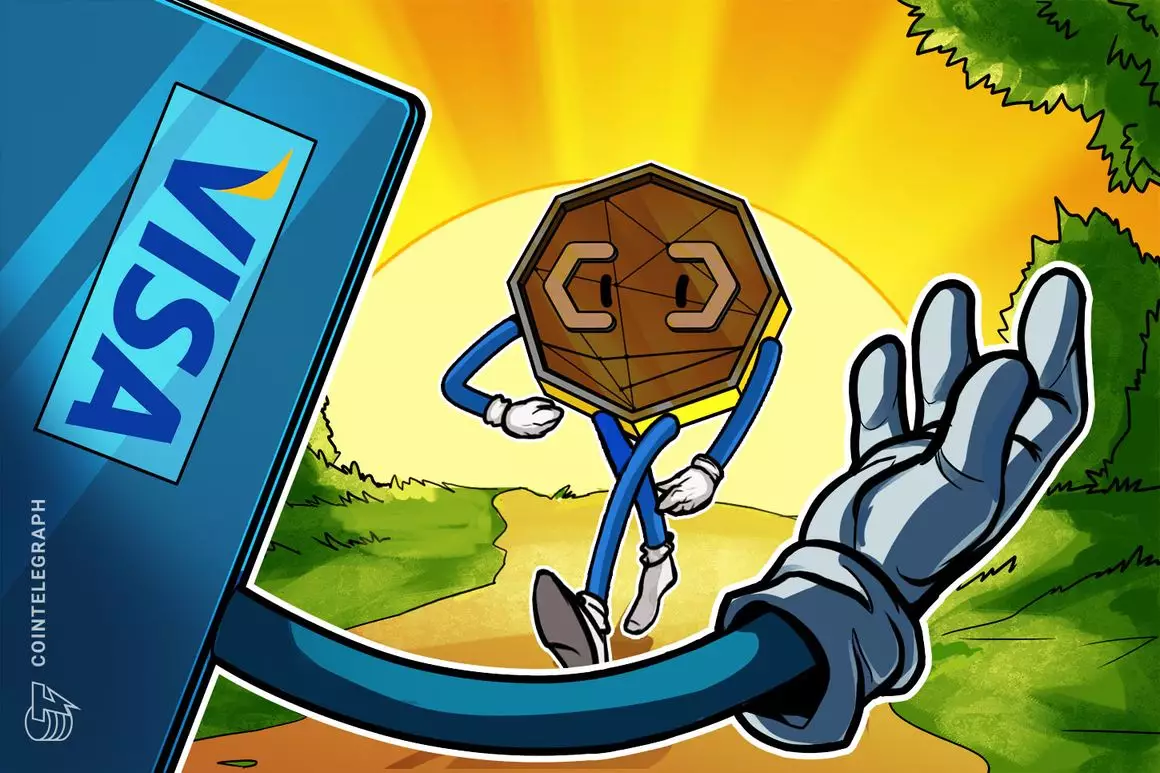Global payments processor Visa continues to enhance its stablecoin offering, with recent support for USD Coin (USDC) payments settled on the Solana blockchain. This development demonstrates Visa’s commitment to adopting digital currencies and blockchain technology to improve the efficiency of cross-border settlements and bridge the gap between traditional finance and Web3.
Visa has been actively testing USDC since 2021 through collaborations with Crypto.com. These initial pilots involved settlement of stablecoins on the Ethereum blockchain. By integrating USDC issued on Ethereum and Solana into Visa’s ecosystem, the company can tap into their treasury and settlement systems, enabling faster cross-border settlements.
The integration of USDC and blockchains like Ethereum and Solana brings several benefits, including improved speed of cross-border settlements. Previously, cross-border purchases made on Crypto.com Visa cards required time-consuming currency conversion processes and incurred wire transfer fees. However, by leveraging USDC for settlement obligations, Crypto.com can eliminate these inefficiencies and streamline the payment process.
Visa’s partnership with Circle, the issuer of USD Coin, allows funds to be sent to USDC acquirers such as Worldpay and Nuvei. This integration expands settlement options for merchants, reducing settlement times and enabling them to better manage their treasury operations. Worldpay merchant solutions president, Jim Johnson, emphasizes how Visa’s USDC settlement capability enhances their ability to offer merchants more choices for receiving funds.
As Visa continues to explore innovative solutions, this latest development is just the beginning. Nabil Manji, Worldpay head of crypto and web3, highlights the potential for future enhancements, including 24/7/365 settlement availability and real-time or multiple daily settlements. These advancements can significantly accelerate cross-border commerce and provide merchants with faster, more cost-efficient settlement of consumer payments.
Visa is also actively exploring solutions for off-chain gas fee settlements on the Ethereum blockchain using Paymaster smart contracts. These smart contracts have the ability to make payments for users and execute logic for various transaction capabilities. By finding ways to minimize gas fees, Visa aims to further enhance the efficiency and affordability of Ethereum-based transactions.
Visa’s integration of USDC and its continued efforts to embrace blockchain technology have significant implications for the payments and commerce landscape. Circle co-founder and CEO Jeremy Allaire believes that this partnership marks a fundamental blockchain innovation that could revolutionize secure, reliable payments. As Visa expands its support for stablecoin payments settled on the Solana blockchain, the traditional financial system becomes increasingly connected to the world of cryptocurrencies.
Visa’s adoption of USDC and its expansion into the Solana blockchain reflect the company’s dedication to driving innovation in the payments industry. By leveraging stablecoins and blockchain technology, Visa aims to enhance the speed and efficiency of cross-border settlements. With strategic partnerships and ongoing exploration of new solutions, Visa continues to pave the way for the future of payments and commerce.














Leave a Reply